SOAP Board
We identify several programming technique of memristors. To measure & compare these methods we develop simple board. The main board requirement is simple, offering several configuration memristors’s mode and in second step using the programmed memristors into a simple electronic function.
The simple electronic function for SOAP is simple gain amplifier ajustement. Depending on SOAP results a second project will be launched around multistage analog filters.
The different programming methods are
- Classic Resistor
- Current Mirror ( REF2000/OPA602 ; LT1990 ; discrete MOSFET )
- Active programming as described in High precision analogue memristor state tuning DOI:10.1049/el.2012.2295 http://dx.doi.org/10.1049/el.2012.2295
- Bridge programming as described in A bridge technique for memristor state programming DOI:10.1080/00207217.2019.1692371 https://doi.org/10.1080/00207217.2019.1692371
The targeted memristor for this board is a tungsten or Carbon SDC in DIL16 from Knowm inc and the global development environment is Digilent AD2 Platform.
The block diagram is the following
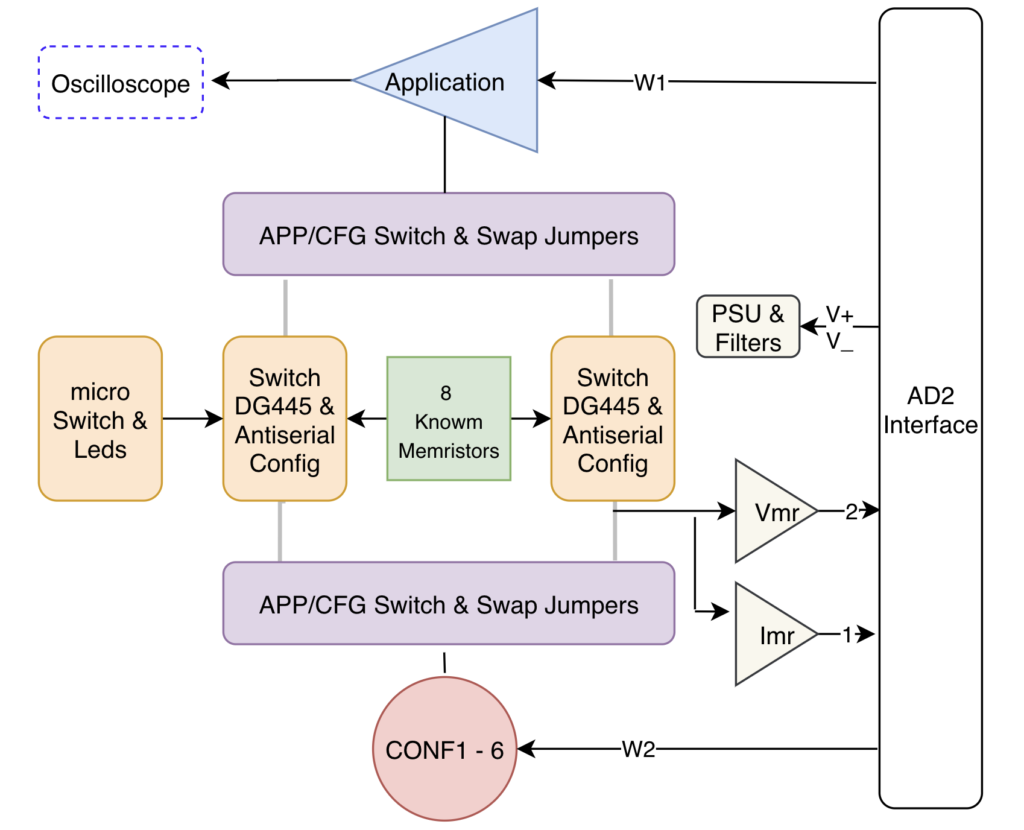
SOAP Layout V1

SOAP V1 Results are quite positives :
- Current mirrors topologies are NOT appropriate to program SDC memristors. A voltage-lock in effect was observed each time , which makes a precise programming value very difficult. (Voltage lock-in occurs when the resistance of the device falls below a limit where the current-limited drive circuitry cannot apply a sufficient negative voltage to overcome threshold)
- The topology described by “Active programming as described in High precision analogue memristor state tuning DOI:10.1049/el.2012.2295 ” doesn’t fit with our requirements. Negatives pulses generates erase therefore no long period of stable resistor
- The topology described by “Bridge programming as described in A bridge technique for memristor state programming DOI:10.1080/00207217.2019.1692371″ looks promising . We got positive results but due to not precise data sheets of ALDxxx MOSFET we decided to adjust the design.
SOAP Layout V2b
Board specifications are
- Three configurations methods:
- Classic Resistors (CONF1)
- Transimpedance topology as described in DOI:10.1109/ACCESS.2019.2915100 (CONF2) https://ieeexplore.ieee.org/abstract/document/8708254
- Bridge programming as described in DOI:10.1080/00207217.2019.1692371 (CONF3) https://doi.org/10.1080/00207217.2019.1692371
- Antiserial configuration allowed on 4 memristors
- Precise onboard measurement of Memristor’s Voltage & Current
- Memristors & CONF/APP mode selection by Waveforms interface (AD2)
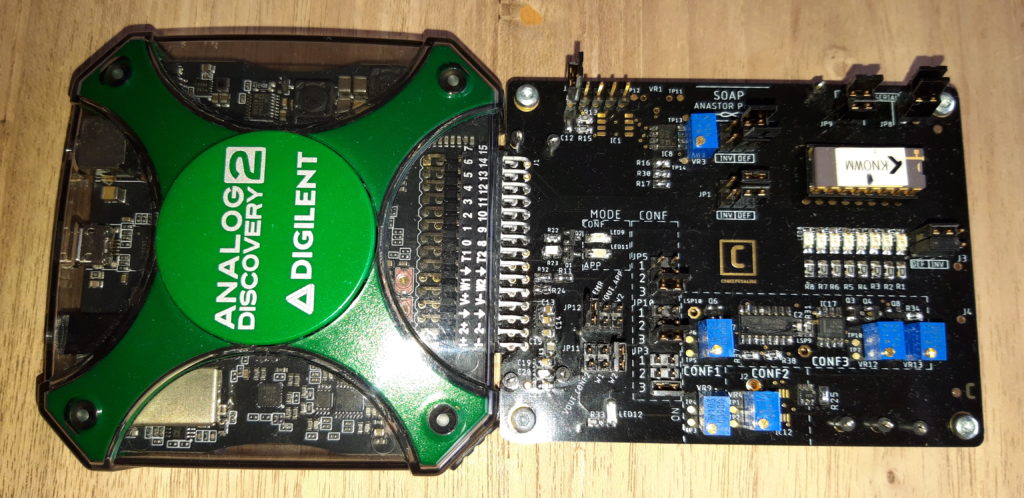
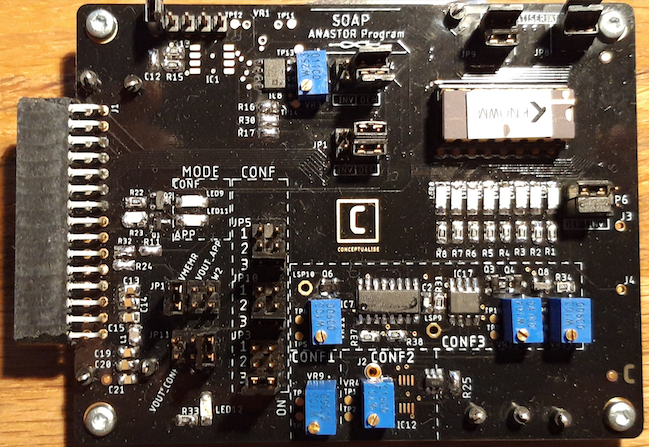
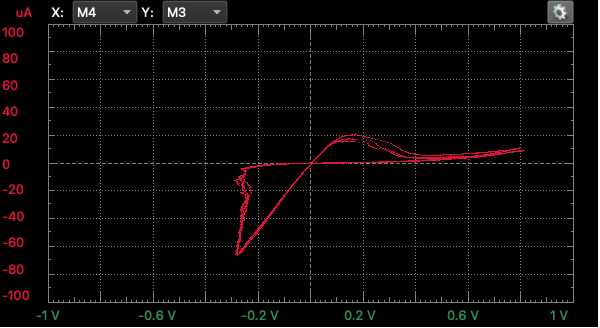
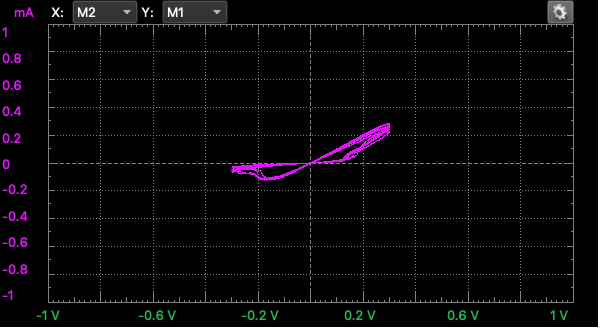
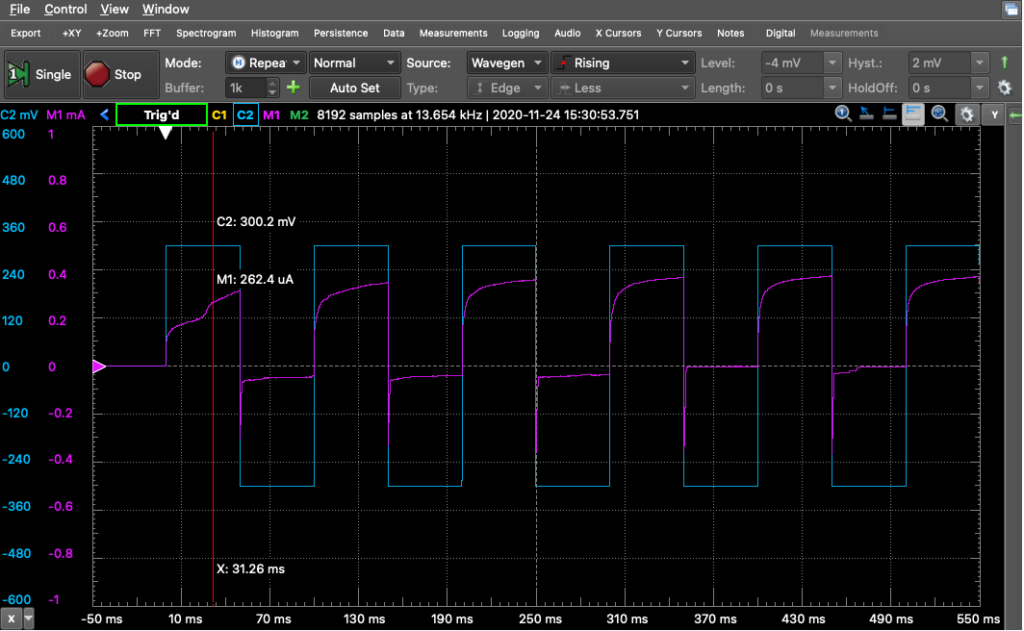
The SOAP 2139V2b is ready for production, don’t hesitate to contact us for a quotation.
JP Guarrera – Manager & Principal Engineer jp.guarrera@conceptualise.be
